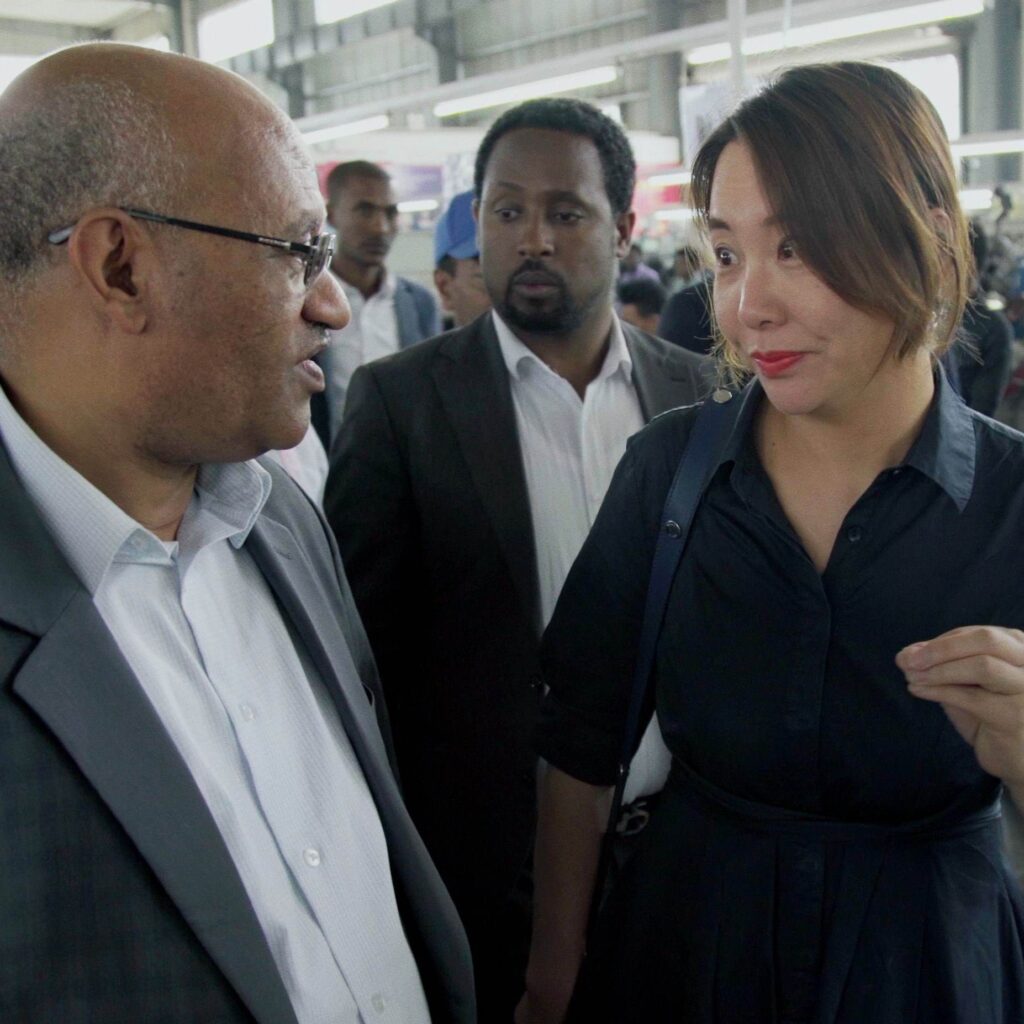
A Nuanced Exploration of Neocolonialism
Made in Ethiopia, the debut offering from the directing team of Xinyan Yu and Max Duncan, is a nuanced and empathetic look at the effects of Chinese industrial expansion in Ethiopia. Since the establishment of the Eastern Industry Park by private Chinese investors in 2008, Ethiopia has steadily been built up as a manufacturing hub of Africa. The foreign investment has helped grow Ethiopia’s economy and provides much needed jobs, but at what cost?
The Life (of) Motto
The film follows Motto, the Eastern Industry Park Deputy Director, who is a surprisingly candid subject for a film that is somewhat critical of the effects of her actions. I say somewhat because the film is rather generous to the corporate overlords while not shying away from their callousness and desire to achieve their goals by any means necessary.
Motto seems to be sincere when she espouses the good that her work does. The jobs it provides, the skills that get developed, and the pride that comes from creating quality work, are all points of pride for her. She believes that employment gives people hope, “If there’s hope, there won’t be unrest.” But as the film progresses, we see that she’s more driven by meeting targets and staying on schedule than anything. She’s a pure pragmatist who is married to her job, and doesn’t understand why everyone else isn’t as dedicated as she is.
Factory Girl
We’re then introduced to Beti, a factory worker who dreams of a better life. Through her, we see the realities of life on the factory floor. Beti and the community of workers feel fortunate to have jobs, but the pay doesn’t always cover their expenses, and the work is physically draining and mentally unstimulating. The Chinese management also has unrealistic expectations of the workers output, which creates tensions between them and the workers. As Beti explains, “We Ethiopians have our own way. We work but we also enjoy ourselves.”
Ethiopia has no national minimum wage. Sewing machine workers featured in the film earn about $50 a month, which is more than many workers in other factories. While the Chinese managers regularly state that they’re helping Ethiopians, the end result comes across as exploitative. Ethiopians provide cheap labour while foreign investors extract the profits.
Tradition vs Modernity
We’re also exposed to the plight of farmers near the industrial park facing displacement. The Ethiopian government sold the land they survived on so Motto and her team could expand their facilities. The government partially compensated the farmers but hasn’t made good on all the promises they made, leaving the farmers and Motto to fight for their rights to the land.
We meet Adugna and Workenish, a married couple who are struggling to come to terms with the reality that faces them. Industrialisation is literally on their doorstep, threatening to eradicate their way of life and absorb them into the workforce. Workenish, the matriarch of the family, is more accepting of the future that lays ahead, which, as we learn, stems from the resentment she has for her husband who kidnapped and married her at the age of fourteen. Employment offers her a way out of the patriarchal structures that trap her.
A Double Edged-Sword
The film shows us the effects of neocolonialism without directly criticising it. It’s empathetic to everyone involved and leaves you to be the judge. We understand everyone’s actions and motivations because at the end of the day, everyone needs to provide for themselves and their families. From local workers to Chinese immigrants, they’re all just trying to make the best of their limited options in search of a better life. But at what cost?
Catch the film at the Encounters South African International Documentary Festival: http://encounters.co.za/
Author: Bob Perfect
This review emanates from the Talent Press programme, an initiative of Talents Durban in collaboration with the Durban FilmMart Institute and FIPRESCI. The opinions expressed in this article are those of the author (Bob Perfect) and cannot be considered as constituting an official position of the organisers.

